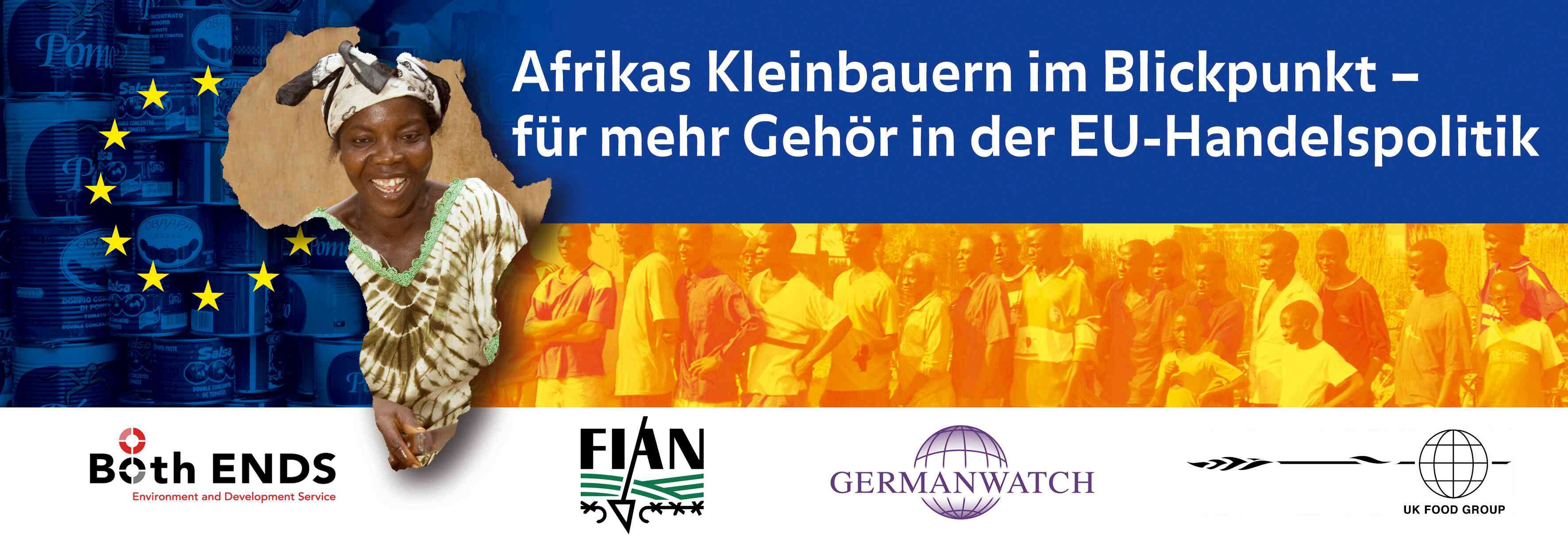African smallholders in focus. A voice in EU trade policy - a dialogue oriented public advocacy (international capital flows & trade) |

Smallholder farmers in focus Three quarters of the hungry people of the worldlive in rural areas, and the majority of them are smallholder farmers. An important reason for this problem is their marginalisation in both national and international agricultural and trade policymaking. The situation is particularly severe in Africa where a very large part of the population lives in rural areas, and the absolute number of hungry people continues to rise. Trade liberalisation as promoted by WTO, IMF and World Bank has not contributed to the economic prospects of smallholder farmers who often only have a small share in the export economy and at the same time are most likely to be adversely affected by cheap agricultural imports. Prominent examples are the low-cost exports of tomatoes, beef or chicken from the EU to Western Africa. Local markets are flooded with cheap products, and the resident smallholders cannot compete. In many cases, it is the combination of dumping by developed countries and import liberalisation that threatens the human right of the smallholders to adequate food. Impact of trade negotiations Two current negotiation processes may have a serious impact on the agricultural trade between EU and Africa and consequently on smallholder farmers:
We will organise:
Contact Information: Germanwatch e.V. Contact person: Kerstin Lanje Address: Kaiserstr. 201, D-53113 Bonn - Germany Tel: +49-228-60492-15; Fax +49-228-60492-19 Email: lanje(at)germanwatch.org Website: www.germanwatch.org Foodfirst Information & Action Network(FIAN) Contact person: Armin Paasch Address: Düppelstr. 9-11, D-50679 Cologne - Germany Phone: +49-221-7020072; Fax: +49-221-7020032 Email: a.paasch(at)fian.de Website: www.fian.de UK Food Group Address: 94 White Lion Street, London, N1 9PF - United Kingdom Phone: +44-207-7135813; Fax: +44-207-8371141 Email: ukfg(at)ukfg.org.uk Website: www.ukfg.org.uk FIAN International Contact persons: Sofia Monsalve, Thomas Hirsch Address: Willy Brandt Platz 5, D-69115 Heidelberg - Germany Phone: +49-6221-6530051; Fax: +49-6221-830545 Email: hirsch(at)fian.org Website: www.fian.org Both ENDS Contact person: Dr. Burghard Ilge Address: Nieuwe Keizersgracht 45, 1018 VC Amsterdam - the Netherlands Phone: +31-20-6230823; Fax: +31-20-6208049 Email: bi(at)bothends.org Website: www.bothends.org |